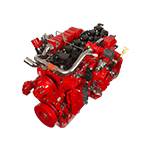Dec . 18, 2024 02:25 Back to list
How to Fix Squeaky Brake Drums for a Quieter Ride
Understanding Brake Drum Squeaks Causes and Solutions
One of the most disconcerting sounds a driver can encounter is the unmistakable squeak emanating from the brake system. While brake squeaks can often be overlooked, they commonly signify that something is amiss, particularly when it comes to brake drums. Understanding the causes of brake drum squeaks is vital for vehicle safety and maintenance.
What is a Brake Drum?
Before delving into the causes of brake drum squeaks, it's important to understand the function of brake drums within a vehicle's braking system. Brake drums are an essential component of a drum brake system, typically found on the rear wheels of many vehicles. They are cylindrical components that house the brake shoes, which expand against the inner surface of the drum to create friction and slow down the vehicle when the brakes are applied.
Common Causes of Brake Drum Squeak
1. Worn Brake Shoes One of the most prevalent reasons for squeaking brake drums is the wear and tear of the brake shoes. As the friction material on the brake shoes wears down over time, it can become uneven or thin, leading to reduced efficiency and squeaking sounds when brakes are applied. It’s advisable to periodically check the condition of the brake shoes and replace them when they show signs of significant wear.
2. Dust and Debris Buildup Brake drums can accumulate dust, dirt, and road debris, which can lead to abnormal sounds when the brakes are engaged. This buildup not only affects performance but can also cause a squeaking noise as the brake shoes rub against the contaminants. Regular cleaning of the brake assembly can prevent this issue.
3. Moisture and Rust Exposure to moisture can lead to corrosion and rust on the surface of the brake drum. This rust can create a rough surface and lead to squeaking as the brake shoes make contact. Ensuring that the braking components are protected from moisture and checking for signs of rust can help mitigate this issue.
4. Improper Installation If the brake drum or shoes are not installed correctly, they may not sit evenly or may be misaligned, which can lead to squeaking noises. It is crucial to have a professional or well-informed individual handle brake installation to avoid improper setups that result in unnecessary sounds.
brake drum squeak

5. Lack of Lubrication Some parts of the brake system need lubrication to function smoothly. If components such as the brake shoe backing plate or the drum itself lack proper lubrication, it can result in squeaks or other noises when the brakes are applied. Regular maintenance, including lubrication, is important for optimal performance.
6. Quality of Parts Using substandard or incompatible brake components can also result in squeaking noises. High-quality brake shoes and drums manufactured for specific vehicle models will typically perform better and produce less noise. Investing in OEM (original equipment manufacturer) or high-quality aftermarket parts can ensure better performance.
Solutions and Preventive Measures
To address brake drum squeaks, drivers should consider a few immediate actions
- Inspection Regularly inspecting brake components can help identify wear and other issues before they become serious. - Cleaning Keeping the brake assembly clean from dust and debris can reduce squeaking, enhancing performance.
- Professional Help When in doubt, consulting with a professional mechanic is always a wise choice for diagnosing complex brake issues.
- Maintenance Keeping to a regular maintenance schedule for your vehicle’s brake system will help in maintaining performance and catching potential issues early.
In conclusion, while brake drum squeaks may seem like an annoyance, they can be symptomatic of underlying issues that need attention. Being proactive about brake maintenance and addressing squeaking as soon as it occurs will ensure that your vehicle remains safe and reliable on the road.
-
Scania Brake Drums: OEM Quality for Optimal Safety & Durability
NewsAug.16,2025
-
R.V.I: Advanced Remote Visual Inspection for Precision
NewsAug.15,2025
-
Discover HYUNDA: Innovative Vehicles, Equipment & Solutions
NewsAug.14,2025
-
R.V.I: Unlock Advanced Insights & Real-time Performance
NewsAug.13,2025
-
Kamaz Brake Drum: Durable & Reliable for Heavy Duty Trucks
NewsAug.12,2025
-
Heavy Duty Iveco Brake Drum - Premium Quality & Safety
NewsAug.11,2025
